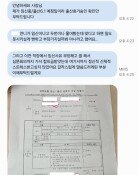Anti-US activist`s terror on US envoy should not cause cracks in alliance
Anti-US activist`s terror on US envoy should not cause cracks in alliance
Posted March. 06, 2015 07:31,
Thursday`s attack on U.S. Ambassador to South Korea Mark Lippert was a crime of madness committed by an anachronistic anti-American activist. The assailant, Kim Ki-jong, attacked the U.S. envoy with a 25-centimeter-long fruit knife at the Sejong Center in downtown Seoul. The horrible incident is a reminder of a 2006 blade attack on Park Geun-hye, who was then leader of the opposition Grand National Party. Washington is also shocked by the incident, as it was the first time that a U.S. envoy was under a terror attack in South Korea, one of the United States` closest allies. We denounce terrorism in the name of the Korean people and pray for Ambassador Lippert`s quick recovery.
At the scene of the crime, Kim repeatedly shouted, "No to war exercises." At a police station he was dragged to, he claimed that he targeted the U.S. envoy "to teach Americans a lesson." The assailant wielded a knife at the ambassador of Seoul`s closest ally out of resentment over the Key Resolve, a South Korea-U.S. joint military exercise that kicked off Monday. We suspect if he has any links to North Korea. His anti-U.S. activism escalated after visiting the North six times between November 2006 and April 2007. Seoul needs to shed light on whether Kim committed the act of terror voluntarily just because he opposed the joint military drill or he was masterminded by certain forces behind him.
Kim is a dangerous man who received a two-year suspended prison sentence for throwing a piece of concrete at the Japanese ambassador to South Korea five years ago. Although he was a member of the Korea Council for Reconciliation and Cooperation (KCRC), which hosted the Thursday event where the attack occurred, he did not send a previous notice of his attendance and entered the venue after putting on a hand-written name tag. Still, he was stopped by no one and was able to approach the U.S. envoy with a knife hidden in his body. It was the South Korean police`s mistake to fail to prevent such a terrorist act by leaving alone a criminal convict with radical anti-U.S. inclinations who had a record of attacking a foreign envoy. Although the police said the U.S. embassy in Seoul had not requested bodyguards, it is a host country`s due responsibility to protect the safety of foreign diplomats. The KCRC cannot cover its security oversight with its chairman Hong Sa-duk`s offer to resign.
Although Ambassador Lippert, who came to Seoul in October 2014, is an influential official whom U.S. President Barack Obama calls a "brother," the envoy had shown down-to-earth personality, saying hello to Seoul citizens while walking to work from his official residence. He gave a Korean name "Se-joon" to his first child who was born in Seoul in January. The scene of U.S. ambassador who actively tried to get closer to South Koreans being taken to a hospital while bleeding and of the culprit being arrested at the scene have been reported by major media outlets around the world. We are concerned that such scenes would give North Korea or international terrorist groups an impression that there are many holes in South Korea`s security network.
North Korea is demanding a halt to the Key Resolve annual defense exercise with an eye to cause a friction between Seoul and Washington. Some foreign media cited South Korean leftists` claim that "the U.S. military presence in South Korea is a hindrance to the reunification of two Koreas." The latest incident could cause resentment in the U.S. against the South. Seoul should thoroughly investigate what motivated Kim and whether he has masterminds behind him and manage the situation well so that it would not have even the least negative impact on the Seoul-Washington alliance.
Headline News
- N. Korea launches cyberattacks on S. Korea's defense companies
- Major university hospital professors consider a day off each week
- Italy suffers from fiscal deficits from ‘Super Bonus’ scheme
- Inter Milan secures 20th Serie A title, surpassing AC Milan
- Ruling and opposition prioritize spending amid tax revenue shortfalls







